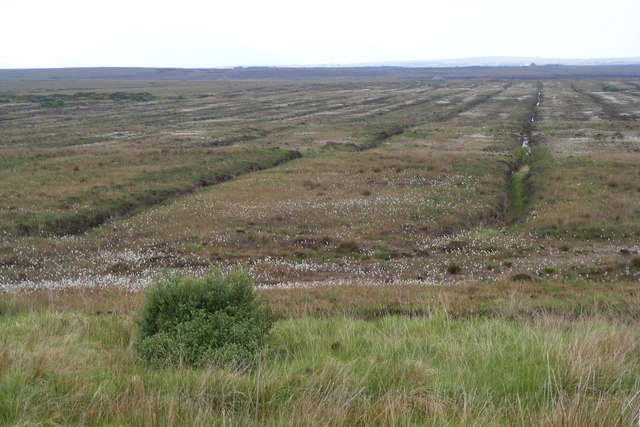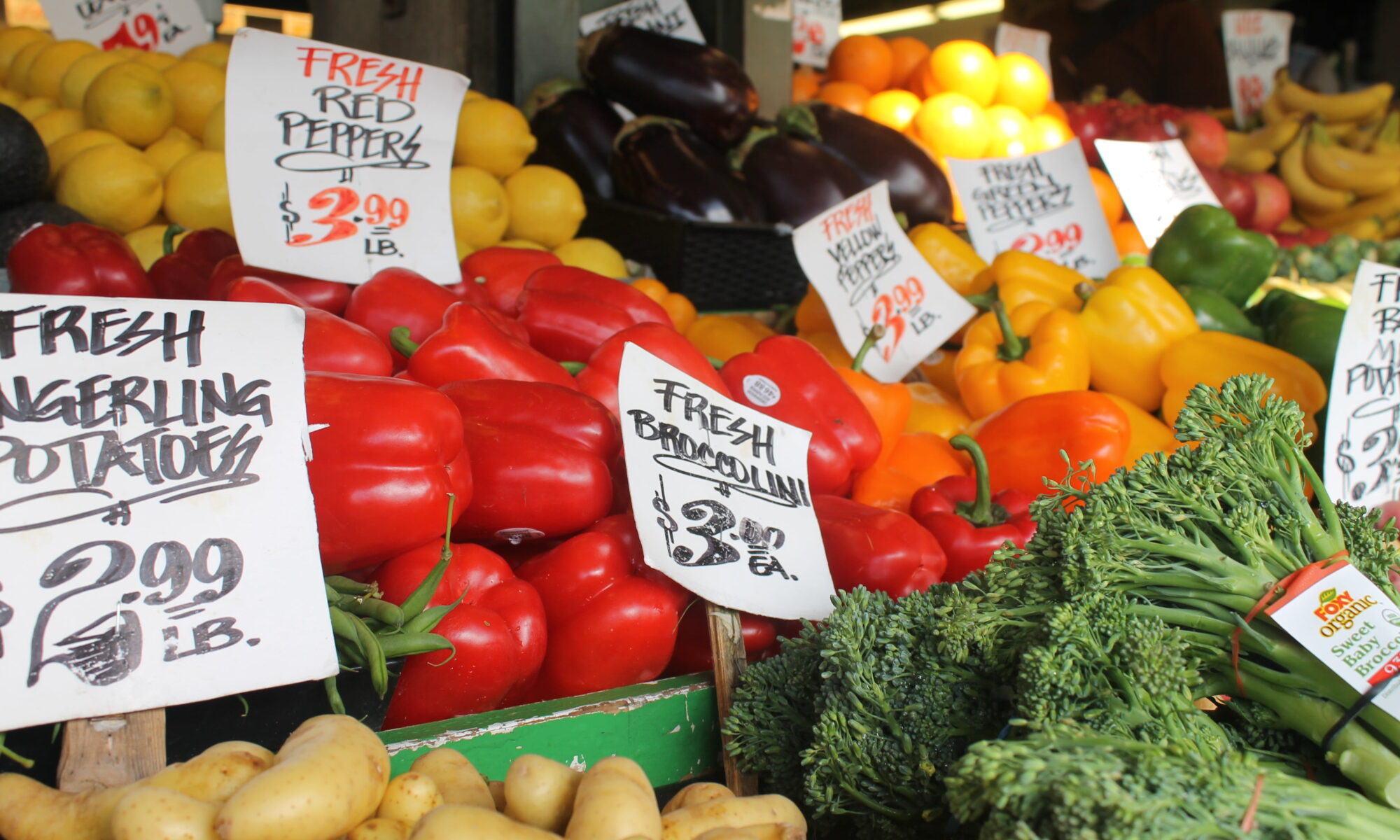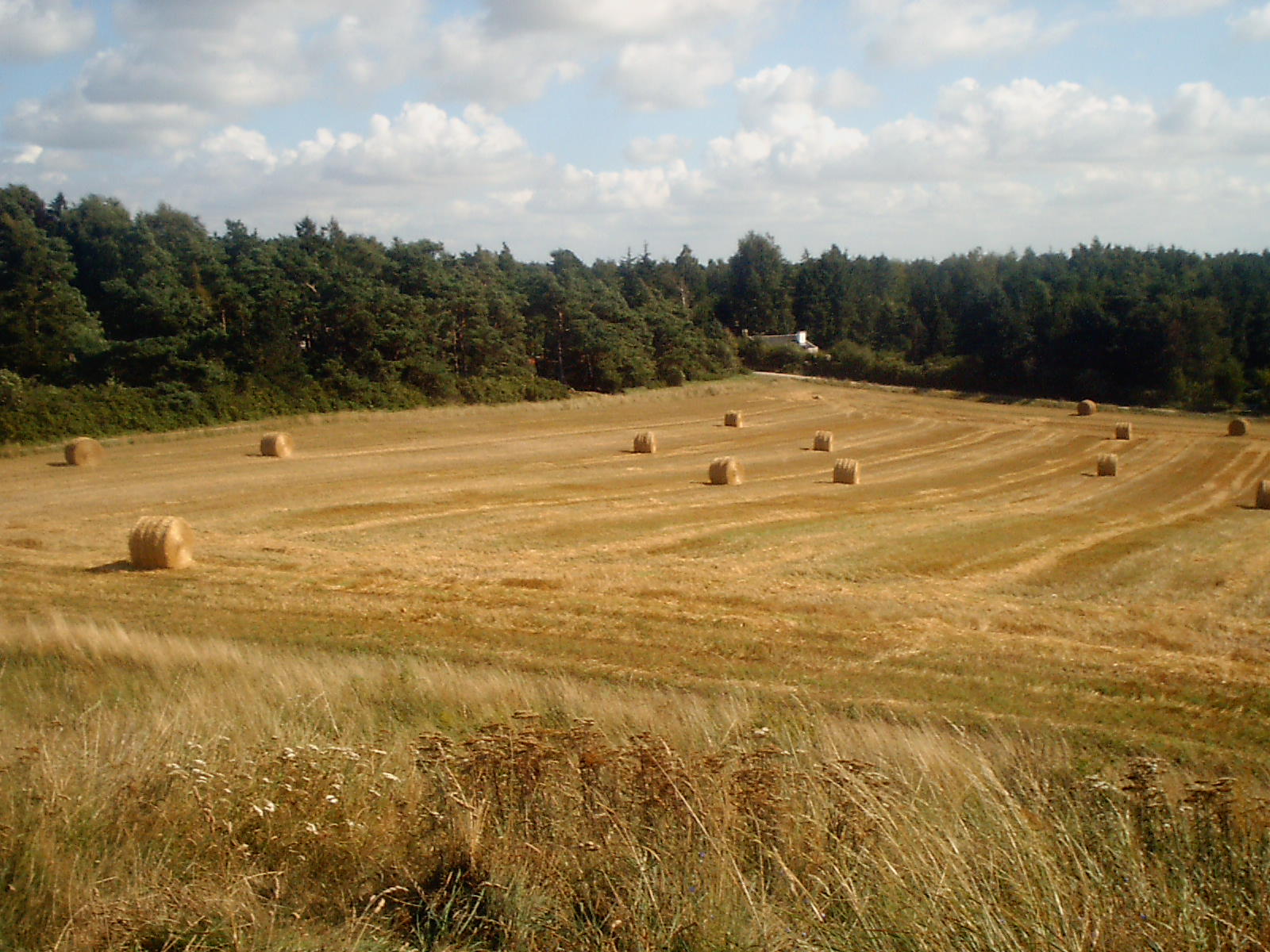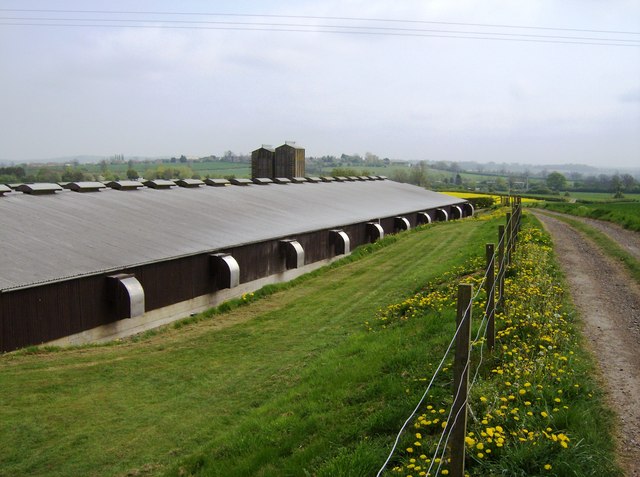The concept of ‘net zero’ greenhouse gas emissions enshrined as the EU target in the European Climate Law implies that there will continue to be ‘unavoidable’ emissions in 2050 which will need to be offset by carbon removals from the atmosphere. For example, it is not possible for primary agriculture to reduce its gross emissions to zero and in a net zero world these will have to be offset by carbon removals. Furthermore, the Law sets the aim of negative emissions after 2050. While the IPCC recognises that carbon removals will be necessary to meet the Paris Agreement targets, there is still debate around how to define ‘unavoidable’ emissions and how large carbon removals will need to be by mid-century.… Read the rest
Food prices stabilising but yet to fall
I wrote a blog post in March this year “Food price inflation gathers pace” which used inflation data up to February. I concluded that post by noting that “the explanation for the continuing rise in food price inflation is mostly likely down to the lags in transmitting price changes through the food price chain. Food price increases in the past year, though very high, have not fully reflected the increases in prices at primary producer level. As food manufacturers and retailers continue to adjust their prices to these higher input costs, food price inflation is likely to continue at a high level”.… Read the rest
What can we learn from New Zealand’s experience in introducing a scheme to price agricultural emissions?
The European Union is pondering the possible introduction of a pricing scheme for agricultural emissions as a way to accelerate the reduction in agricultural emissions on the way to net zero emissions by 2050. In the wake of criticism from the European Court of Auditors in its 2021 report on the climate performance of the CAP, and in light of the Court’s recommendation that the Commission should “assess the potential to apply the polluter-pays principle to emissions from agricultural activities, and reward farmers for long-term carbon removals”, the Commission has commissioned an exploratory study on pricing agricultural emissions and rewarding climate action in the land sector.… Read the rest
How might the political composition of the European Parliament change in the 2024 elections?
This post first appeared on LinkedIn on June 11, 2023 and is reproduced here without amendment. Since that date there have been national parliamentary elections in Greece and Spain which in many respects confirm the analysis presented here. Furthermore, it is now agreed to increase the number of seats in the European Parliament by 15, with additional seats going to France, Spain and the Netherlands (2 each) and 1 additional seat to Austria, Belgium, Poland, Slovenia, Slovakia, Finland, Latvia, Ireland and Denmark.
A couple of weeks ago the Council of the EU confirmed that the next elections to the European Parliament (EP) will take place from 6 to 9 June 2024.… Read the rest
Food price inflation gathers pace
Overall inflation in the EU shows some tentative signs of moderating in the latest figures for the Harmonised Index of Consumer Prices (HICP) from Eurostat for February 2023. From a peak annual rate of inflation of 11.5% in October 2022, the annual rate fell to 9.9% in February 2023. This is entirely due to a fall in energy costs which also reached their peak in October 2022. Food price inflation, however, continues unabated and increased further in February 2023 to an unheard-of annual rate in recent decades of 19.1%. Unfortunately, this high rate of food price inflation looks set to continue for a further period.… Read the rest
The changing distribution of CAP direct payments over time
The distribution of CAP direct payments among farmers has been a continuing source of controversy ever since the Commission’s 1991 Reflections Paper on the development and future of the CAP that prefigured the MacSharry reform noted that 80% of the support provided by FEOGA is devoted to 20% of farms which account also for the greater part of land used in agriculture. In successive CAP reform proposals the Commission has proposed measures that would allocate CAP support more evenly across farms, including in its 2018 legislative proposal for the CAP 2021-2027. On each occasion, the Council has pushed back and weakened the Commission proposal, as also happened with the outcome for the CAP post 2023 (the debate on redistribution in the 2018 reform is reviewed in this report for the European Parliament, chapter 5).… Read the rest
Conversation with a chatbot on the Common Agricultural Policy
Artificial intelligence (AI) has been described as the fourth industrial revolution, following the invention of the steam engine, electric power, and the internet. AI tools can rapidly synthesize large amounts of data and detect patterns. AI tools are increasingly used in business but also in the provision of public services in activities such as risk profiling, the delivery of medical care, and traffic management.
There is growing interest in the interface between AI and public policy. This is a relationship that works both ways. On the one hand, there are concerns about how best to regulate the use of AI in society.… Read the rest
2022: a record year for farm income
2022 was a challenging year for farming in the EU. Buffeted by weather extremes, disease outbreaks and rising input costs due partly to the lifting of COVID-19 restrictions but particularly following the Russian invasion of Ukraine in February, there was a sharp drop in agricultural production. Yet despite the predictions of doom and gloom, 2022 was a record year for EU farm income.
We had effectively the converse situation to the farmer in Shakespeare’s Macbeth who ‘hanged himself on the expectation of plenty’. Shakespeare’s farmer had hoarded grain in order to sell it later, when prices went up. But when prices went down instead due to a good harvest, he goes bankrupt and hangs himself in despair.… Read the rest
Regulating the most polluting livestock farms is justified
This post was first published in Acid News No. 4, December 2022 and is reproduced here with permission.
In April 2022 the Commission proposed to amend the Industrial Emissions Directive (IED) to increase its effectiveness in reducing emissions of industrial pollutants that are harmful to human health and the environment.
The Directive seeks to ensure that installations operate using Best Available Practices. Installations covered by the IED are required to operate in accordance with a permit which sets conditions in line with the principles of the IED.
Around 52,000 installations are currently covered by the IED, of which 23,000 are large pig and poultry farms.… Read the rest
Tracking structural change in EU agriculture
Let me welcome you to the first blog post on capreform.eu since I last posted in July. The long absence was due to two reasons. First, the blog was hacked which prevented me from accessing the back end where I construct the posts. And second, a series of commitments over the summer and autumn meant that I did not have the time (or skills) to work out how to regain access to the blog. Fortunately, the blog posts themselves remained available for those who wanted to read them.
I have now found a way around the block. The site will need a bit more work to fully stabilise it and secure it against future hacking attempts but at least I am able to post again.… Read the rest










